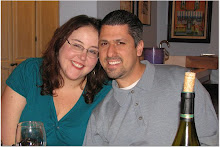I have certainly been cooking a lot lately. Whether it’s a peach pie for Ari’s grandmother’s 97th birthday or a random dairy dish for a Jewish community event, I have been cooking up a storm. And always, people seem to want to pick my brain about it. How do I cook things correctly on the first try? How do I understand food? And usually, can I teach them how?
The answer usually simple, as more often than not, it comes down to intuition.
I know that sounds like a way out of giving an answer, but it is the most truthful way to approach it. I’m not the most experienced in the kitchen – my knife skills aren’t the best, and I don’t have access to all the freshest ingredients. I can’t move as fast as the chefs on TV. But I have a good palette and recognize flavor, knowing what each element brings to the pot and am able to combine flavors in order to get what I want.
Intuition, for me, is studying every ingredient and unlocking its secrets. Understanding what a lemon can bring to a dish – the acidity, the freshness, even the ability to cook in a ceviche – can bring a new dimension to whatever you’re working with. Comprehending the full nature of ingredients can make it ten times easier to approach a new dish for the first time than if you didn’t understand.
This is where a different element comes in, and one that most people don’t think about when it comes into food: science. Not many people know that I was pretty good at it when I was in high school, so I understand what is coming at me when it comes to food. For example, take milk – if I recipe calls for milk, I understand that there is lactose there, which is a form of sugar. Plus, depending on the milk, I know there will be a little bit of fat in there to work with as well, which provides a slight element of moisture. Therefore, I usually know how milk will react in a dish, particularly when it comes to baking.
When we unlock the nature of our food, we become less afraid to do things that we may never had dared to do. We recognize the flavors and try different things, which create even better dishes. It gives us courage. Sometimes we fail, but part of messing around in the kitchen is producing some duds along with winners; believe me, I have.
I may not be a molecular gastronomy person (and don’t tempt me – I would love to take the kosher world into the wonders of liquid nitrogen ice cream and beads of salad dressing if I could), but I am utterly fascinated by food and everything it can do. When we understand what we are eating, how we are cooking and how each ingredient brings something new to the table, our food becomes that much more special. We need to take advantage of this and savor it all… except for pork, shellfish and cheeseburgers, of course. ;-)
On that note, I’m going to use milk and lemon for today’s recipe: tortellini in lemon-cream sauce. P’tayavon!
TORELLINI IN LEMON-CREAM SAUCE
2-3 cups leftover beschamel sauce (see Lasagna Florentine recipe)
2 tablespoons lemon zest
1 tablespoon lemon juice
3 garlic cloves, finely minced
1 bag freeze-dried cheese torellini
½ cup parmesan cheese
Reheat the beschamel sauce over low heat. Once heated, add the lemon zest and juice along with the garlic cloves. Adjust the seasonings to taste, then allow to cool and thicken.
Cook the tortellini according to package directions. While still hot, pour the sauce over the pasta and top with parmesan cheese. Mix and serve while hot.

No comments:
Post a Comment